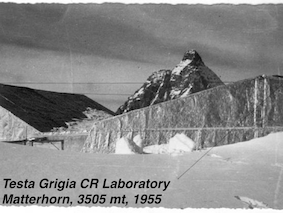Speakers
Prof.
Michael Alania
(Siedlce University)Dr
Renata Modzelewska
(Siedlce University)
Description
We present preliminary results of temporal changes of a surface air temperature based on the monthly data in Tbilisi (Georgia) for the period of 1881-2013 and in Warsaw (Poland) for the period of 1781-2013. We show that global centenary warming in Tbilisi and in Warsaw (northern hemisphere) has the some peculiarities: a) an average global warming effect \delta C = ~ (0.95 -1.10) C/per 100 years is observed in Georgia and in Poland for 1881-2013, b) a warming effect is about twice larger in winter season (delta C ~ 1.50 C /per 100 years) than in other seasons (average warming effect for these seasons delta C ~0.71 C/per 100 years) based on Tbilisi data; while by data of Poland the seasonal effect of the global warming is 2-3 times less. We recognize that a centenary warming is mainly related to the increase of solar activity (estimated by relative sunspot numbers (RSSN)); particularly, a time interval about 80 years (1885-1965), when a correlation coefficient r = 0.82 between RSSN and T, solar activity contributes decisively in the global warning (delta C ~1.10 C/per 100 years). For Last 40-50 years (1960- 2013), when human activities increased significantly, a global warning effect almost equals zero (delta C ~0.05 C/per 100 years). We show that a global warning effect equals zero based on data of Poland for period 1781-1881, when human activities were relatively less than in 1881-2013. Thus, we show that a role of human activities in creation of global warming is to question based on temperature data in Tbilisi and in Poland for period of 1881-2013. Additionally, it is worth to mention about a feeble ~ 22-year periodicity recognized in changes of T by Tbilisi data, most likely related with the 22-year solar magnetic cycles. Generally, changes of global temperature associated with climate needs more fundamental studies.
Author
Prof.
Michael Alania
(Siedlce University)
Co-authors
Prof.
E. I. Khelaia
(M. Nodia Institute of Geophysics of Ivane Dzavaxishvili Tbilisi State University, Tbilisi, Georgia)
Mrs
N.I. Kapanadze
(Institute of Hidrometeotology, Tbilisi)
Dr
Renata Modzelewska
(Siedlce University)

